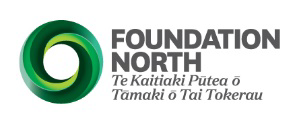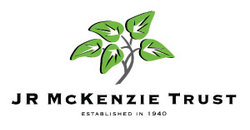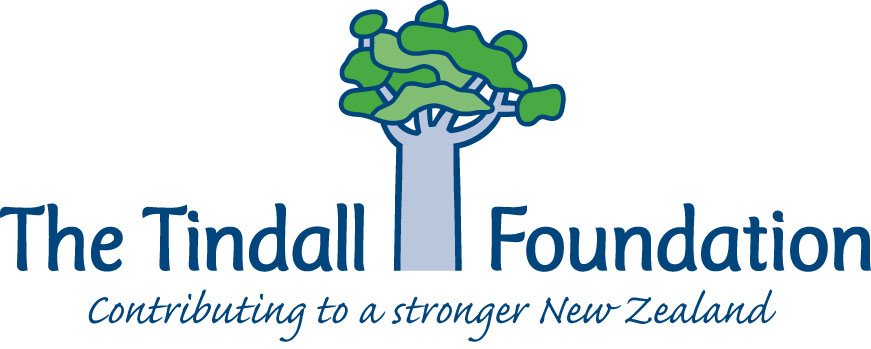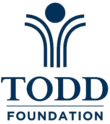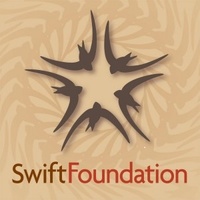| Sofia Arroyo, Mexico Sofia Arroyo is the Executive Director at Sacred Fire Foundation, where she previously served as Director of Communications and Director of Grants and Partnerships. She lives in Mexico City with her husband and two daughters. She has a BA in Communications from Universidad Iberoamericana, and has worked in the film and advertising industry as a director and assistant director since the 1990s. She has lived in Geneva, Switzerland where she attended several UN meetings regarding indigenous issues and became interested indigenous philanthropy. Sofia has been a passionate and strong advocate for the preservation and revitalization of traditional knowledge for many years now and hopes to continue this work for many years to come. Sofia Arroyo sarroyo@sacredfirefoundation.org Sacred Fire Foundation PO Box 11014 90295 Marina del Rey CA USA t. +1 310 272 9764 t. +52 1 55 4363 3970 | |
| Seumas Fantham, New Zealand Seumas Fantham comes from Kaiti, Gisborne, a community on the Eastern North Island, New Zealand. Seumas’ Māori tribal affiliations are Ngāti Porou and Whakatōhea. Seumas has 18 years experience working with indigenous youth in New Zealand. He is currently on the Māori Advisory Committee (MAC) for Philanthropy New Zealand and is a Strategic Advisor (Māori and Youth) for the Todd Foundation. Seumas is a volunteer for Te Ora Hou an indigenous youth development organisation which has been operating for the last 40 years and is based in 6 different regions in New Zealand. He is interested in the topic of Māori success as Māori, and in 2013 was on a research reference group which looked at how Māori can succeed without having to lose their language, culture or identity. Seumas strongly believes that it is important for indigenous people to succeed in both worlds. | |
| Cyril Howard, New Zealand Cyril is the Māori Strategy Manager for Foundation North (formerly known as ASB Community Trust). The role focuses on fostering strategic relationships with whānau, hapū, iwi and Māori communities within the regions of Auckland and Northland to ensure the funding programmes of Foundation North are accessible to Māori. Cyril is also an active member on Philathropy NZ’s Māori Advisory Committee. He has worked for the Foundation for just over 9 years: 3 years as Māori Strategy Manager and 6 years as the Recreation and Sport / Marae Development Grants Advisor. Prior to this he spent 13 years as a Funding Advisor for New Zealand’s Department of Internal Affairs within their Community Operations. Cyril has a background in community work and is currently Chair of an emergency housing and budgeting service provider in the central Auckland area. He has been a member of the organisation for over 20 years. | |
| Mariaelena Huambachano, New Zealand and Peru. Mariaelena is an Indigenous Scholar originally from Peru and a New Zealand citizen. Mariaelena’s PhD research topic and upcoming book entitled Through an Indigenous knowledge food security is Food Sovereignty explores food security, food sovereignty and the relationships between them through an Indigenous lens. Her study provides the first comparative research and in-depth study of the Indigenous worldviews of Quechua and Māori people and their good living philosophies. Buen Vivir/Allin Kawsay in Peru, and Mauri Ora in Aotearoa as key to understanding possibilities for improving food security policies. A strong cultural connection to both countries as native of Peru and a citizen of New Zealand and her passion for Indigeneity and sustainability has led her to conduct research on Indigenous knowledge systems, sovereignty, climate change, Indigenous governance and law, and Indigenous epistemologies. She has published in international journals and book series. Mariaelena is currently based in Rhode Island where she is working as a Research Associate at the Dept of Native American and Ethnic Studies and also in the Centre for the Study of Race and Ethnicity in America (CSREA) at Brown University. | |
| Chris Kavelin, Melbourne, Australia Chris Kavelin has a PhD in Law on “The Protection of Indigenous Medical Knowledge: Transforming Law to Engage Indigenous Spiritual Concerns." His father specialised in Indigenous Psychology and they lived and worked with several Native American communities. His deepest joy has been to continually learn about various aspects of Indigenous Epistemologies: particularly spiritual wisdom around health and medicine from some Indigenous friends and confidantes among Native American, Pacific, Maori and Aboriginal communities. He has a deep passion for translating essential elements of those spiritual understandings for himself, his children and for those of other cultures. Dr. Chris Kavelin has taught Spirituality and Social Transformation at Macquarie University for 10 years. Chris has worked with networks of traditional healers around the world including Native American, Maori and Aboriginal. He has worked closely with Heads of State in the Pacific in helping create national systems of traditional health. | |
| Kayrn Kee, Ōtaki, New Zealand Kayrn who is from Ngāti Ranginui, Ngāpuhi, Ngāti Hine, has been working in the New Zealand tertiary education sector for fifteen years after experience in the Justice and Education sectors. She has a background in tertiary education management, teaching, policy, information management and research. Her current role is within a Māori tertiary education setting where she assists with conference deliveries at Te Wānanga o Raukawa as a medium for sharing Māori ways of knowing that contribute to the survival and vitality of Māori ways of being. Kayrn is an events manager and works in logistics and planning. | |
| Dawn Mahi, Honolulu, Hawaii Dawn Mahi, Consuelo Foundation Honolulu, Program Officer was raised in Kailua, Kāne'ohe and Washington State. She believes in the endless potential for communities to manifest true health and abundance on their own terms. Although she supports from afar as Consuelo Foundation Program Officer at the Honolulu office, she is fully committed and honored to be a part of the MCSAPP team. Her experience is in public health, cultural studies, community development and liminality; she has a Bachelor's Degree from the Evergreen State College and spends as much time with kūpuna as she can. | |
| Ani Mikaere, Ōtaki New Zealand Ani Mikaere is a Kaihautū with Te Whare Whakatupu Mātauranga at Te Wānanga o Raukawa and also contributes to the Āhunga Tikanga (Māori Laws and Philosophy) programme. Before joining the Wānanga, Ani lectured in law for fourteen years, firstly at The University of Auckland and then at The University of Waikato. Her interests include: the influence of Western thought on Māori philosophy; the relationship between the theory and practice of tikanga; and the implications of striving to realise rangatiratanga in a contemporary context. These themes are explored in her publication, He Rukuruku Whakaaro: Colonising Myths, Māori Realities. Ani has recently completed the Te Wānanga o Raukawa qualification, Te Kāurutanga. Her work is titled, Like moths to the flame? Restoring the Integrity of Ngāti Raukawa Thought to Ensure our Survival. | |
| Christa Momot, Australia Christa is the Executive Officer (EO) and Community Development Co-ordinator of Woor-Dungin. Prior to this, she was Co-Chair from 2006 to 2012. Woor-Dungin was established by Christa together with the following Aboriginal women - Doseena Fergie, Aunty Glenys Merry, Simone Spencer, Anne Jenkins and Aunty Frances Bond.Woor-Dungin’s purpose is to increase resources, build strong partnerships and share knowledge to fulfil the purpose of Aboriginal and Torres Strait Islander organisations. See www.woor-dungin.com.au She was formerly the EO of Reichstein Foundation (2001 to 2012) and prior to this, EO of State-wide Women’s Community Housing Service. Christa has had more than 30 years of experience in community sector management, together with policy and program development, advocacy, mediation, community development, teaching and mentoring experience.She has qualifications in Community Development, Mediation, Adult Education and Workplace Training. In 2009, Christa was inducted into the Association of Neighbourhood Houses and Learning Centres Honour Roll to recognise people who have made a significant contribution to the Neighbourhood House sector through their work which has state wide implications and which reflects community development philosophy, principles and practice. Christa has extensive experience of working in the areas of family violence and reform of the criminal justice system. She has advocated on behalf of several women charged with killing their violent partners. Currently, Woor-Dungin is actively advocating for the introduction of a Spent Conviction scheme in Victoria and Christa looks forward to this reform. | |
| Melissa K. Nelson, California Melissa is a writer, researcher, educator, media-maker and cultural and environmental activist. Melissa has served as The Cultural Conservancy’s president and executive director since 1993. In 2000 she completed her Ph.D. in Cultural Ecology with an emphasis in Native American Studies at the University of California, Davis. Since 2002 she has also served as a professor of American Indian Studies at San Francisco State University. Nelson is a Switzer Environmental Fellow and Leadership Award recipient and has served on the boards of numerous environmental organizations including Earth Island Institute and the Collective Heritage Institute, the parent organization to the Bioneers Conference. Her published works have appeared in academic and national journals. Her new edited anthology is Original Instructions – Indigenous Teachings For A Sustainable Future (Bear & Company 2008). | |
| Genevieve Northey, New Zealand Genevieve Northey (Ngāti Tukorehe, Ngāti Raukawa) is the Donations and Systems Advisor at the Tindall Foundation, a family philanthropic organisation based in Auckland, New Zealand. The Foundation is in its 21st year of donating to wide range of social and environmental projects. Genevieve grew up in Warkworth, north of Auckland, and has studied at the University of Otago and the University of Western Australia. Genevieve enjoys connecting with people and organisations who work with indigenous communities, and is looking forward to meeting those who are coming from other parts of the world to Ōtaki in May 2017. Genevieve currently lives in Auckland, and her whakapapa affiliations are to the Waikato and Horowhenua regions (Ngāti Tukorehe and Ngāti Raukawa). | |
| Mereana Selby, Ōtaki, New Zealand Mereana began her education career as a secondary school teacher where she spent 14 years teaching physical education and te Reo Māori. In 1990 she came to Ōtaki to head the Bilingual Unit at Ōtaki College and to participate in the language and cultural revival taking place for her iwi, Ngāti Raukawa, through the Whakatupuranga Rua Mano Iwi Development plan. During this time, she moved into the tertiary sector training Māori teachers and heading a graduate programme for teachers in kaupapa Māori schools at Wellington College of Education. She was then appointed to lead the development of teaching programmes at Te Wānanga o Raukawa. In 2004 she led a research project, Te Ako Hikohiko, which explored the combining of education and technology in enhancing the learning of Te Reo Māori. In 2007 she was appointed to the role of Tumuaki of Te Wānanga o Raukawa, the first female to become a Wānanga CEO. Although a 2nd language speaker of Māori herself, her five children are all 1st language speakers of te Reo Māori and educated in Kōhanga Reo, Kura Kaupapa Māori and Wharekura. Mereana has been active in the Māori language revival movement over the last 40 years, particularly with her own iwi of Ngāti Raukawa and has a particular interest in language revitalisation and intergenerational language transmission. | |
| Rachael Selby, Ōtaki, New Zealand Rachael is from Ngāti Raukawa is an indigenous researcher, writer, teacher, and quilter. She chairs a number of Māori organisations and has managed several projects that have been designed to promote Māori advancement in the 21st century. She was an academic researcher for 20 years at Massey University travelling widely to build networks with other indigenous peoples, editing journals and writing on Māori issues. She now focuses on ensuring that Māori children have every opportunity for success on a world stage as a result of living and being educated in a local Māori community. Rachael lives and works in Ōtaki, New Zealand. | |
| Jane Sloane, San Francisco Jane Sloane is Director, Women's Empowerment with The Asia Foundation. In this role she provides intellectual and programmatic leadership for The Asia Foundation’s programs to empower women in economic, social and political life and advance gender equality in Asia and the Pacific. This includes leading the work to shape the development, implementation, and assessment of regional and country-specific women’s empowerment and gender mainstreaming efforts in Asia and the Pacific. Jane was previously vice president of programs at Global Fund for Women, an organization that uses its powerful networks to find, fund, and amplify the work of women who are building social movements that are challenging the status quo and working to transform systems and economies. Her commitment in the field of human rights and public policy. Prior to this, Jane was Vice President of Development with Women’s World Banking in New York, Executive Director of International Women’s Development Agency and has supported women’s rights organizations across the Asia and the Pacific region. In this role she led a Breakthrough women, faith and development initiative that generated $1.2 billion in new funds for women and girls in the Asia Pacific region. Jane has a Master’s degree in Peace and Conflict Studies from the University of Sydney and a BA (Hons History) from the University of Adelaide. She serves on the Advisory Board of the Centre for Women, Peace and Security at London School of Economics and is a Patron of Marie Stopes International. Jane has been recognized with a 2016 Distinguished Alumni Award from the University of Adelaide, a 2013 Westpac 100 Women of Influence Award; a 2012 Advance Foundation Global Ambassadors Award; an Asia Pacific Business Women’s Council Woman of Distinction Award; a Churchill Fellowship to improve Humanitarian Emergency Response Models for Australia and the region after the Asian tsunami; an Australia Award Endeavour Fellowship focused on increasing Pacific women’s political participation; a Vietnam Women’s Union Humanitarian Medal and a Vincent Fairfax Ethics in Leadership Fellowship. She is also one of the original 75 Australian climate change presenters trained by Al Gore. Her blog is janeintheworld.com | |
| Marama Takao, New Zealand Marama Takao is of Ngāti Rārua, Te Āti Awa, Ngāti Toa Rangatira, Ngāti Tama, Ngāi Tahū and Ngāi Tūhoe descent. She is the Māori Development and Funding Advisor / Kaitohutohu, for the J R McKenzie Trust, and has worked with Community Volunteers Inc. and the Department of Internal Affairs in their Community Development Unit. Marama has two beautiful Mokopuna (grandchildren), Nukuao and Reikura who consistently reminds her what is important in life. | |
| Yvonne Trask, Wellington, New Zealand Yvonne joined Philanthropy New Zealand in 2010. She runs events for Philanthropy New Zealand - she is now coming up to conference No 4 - and works with members, searching out information for them and providing resources. Yvonne has worked in a wide range of jobs from retail to international relations. She loves to travel and she also studies both Taekwondo and Karate. When she gets the chance she writes detective novels and she also enjoys spending time with her family – and her two dogs. | |


